Solution
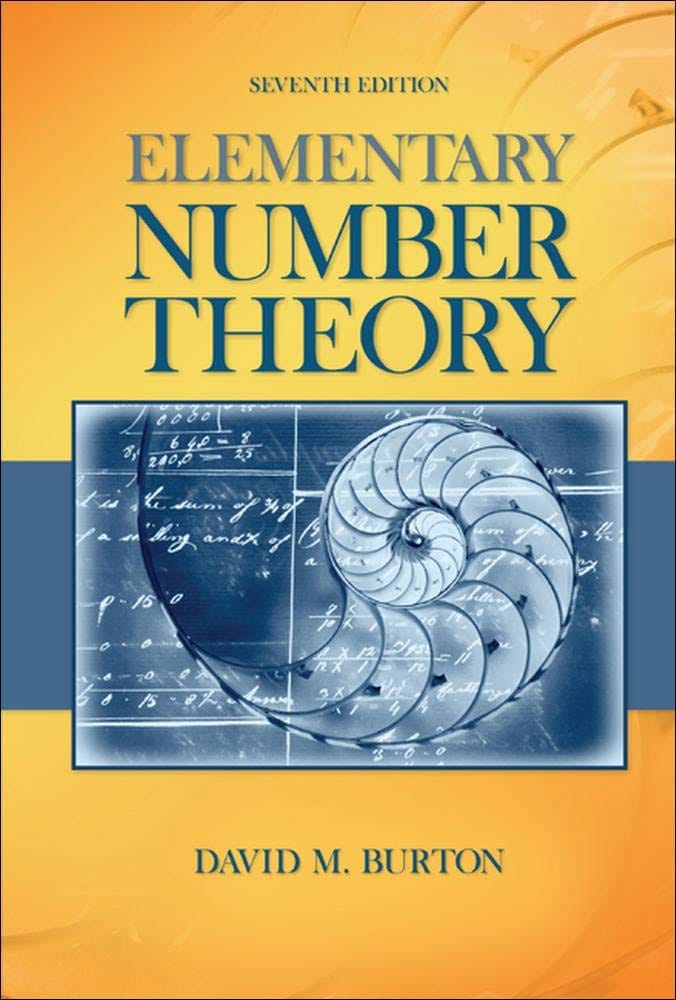
Elementary Number Theory Problems 4.3 Solution (David M. Burton's 7th Edition) - Q11 Paid Members Public
My Solution for "Assuming that $495$ divides $273x49y5$, obtain the digits $x$ and $y$."

Elementary Number Theory Problems 4.3 Solution (David M. Burton's 7th Edition) - Q10 Paid Members Public
My Solution for "Prove that no integer whose digits add up to $15$ can be a square or a cube. [Hint: For any $a$, $a^{3} \equiv 0$, $1$, or $8$ $\pmod 9$.]"

Elementary Number Theory Problems 4.3 Solution (David M. Burton's 7th Edition) - Q9 Paid Members Public
My Solution for "Find the remainder when $4444^{4444}$ is divided by $9$. [Hint: Observe that $2^{3} \equiv -1 \pmod {9}$.]"
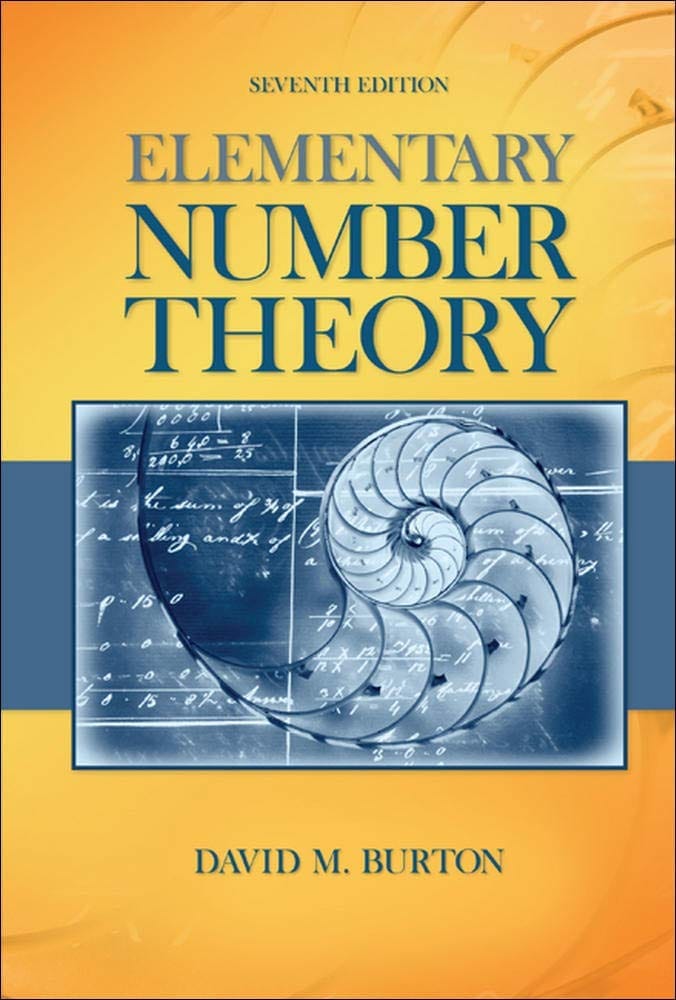
Elementary Number Theory Problems 4.3 Solution (David M. Burton's 7th Edition) - Q8 Paid Members Public
My Solution for "For any integer $a$, show that $a^2 - a + 7$ ends in one of the digits $3, 7$, or $9$."

Elementary Number Theory Problems 4.3 Solution (David M. Burton's 7th Edition) - Q7 Paid Members Public
Establish the following divisibility criteria: (a) An integer is divisible by $2$ if and only if its units digit is $0, 2, 4, 6,$ or $8$. (b) An integer is divisible by $3$ if and only if the sum of its digits is divisible by $3$. (c) An integer is divisible by $4$ if and only if the number...
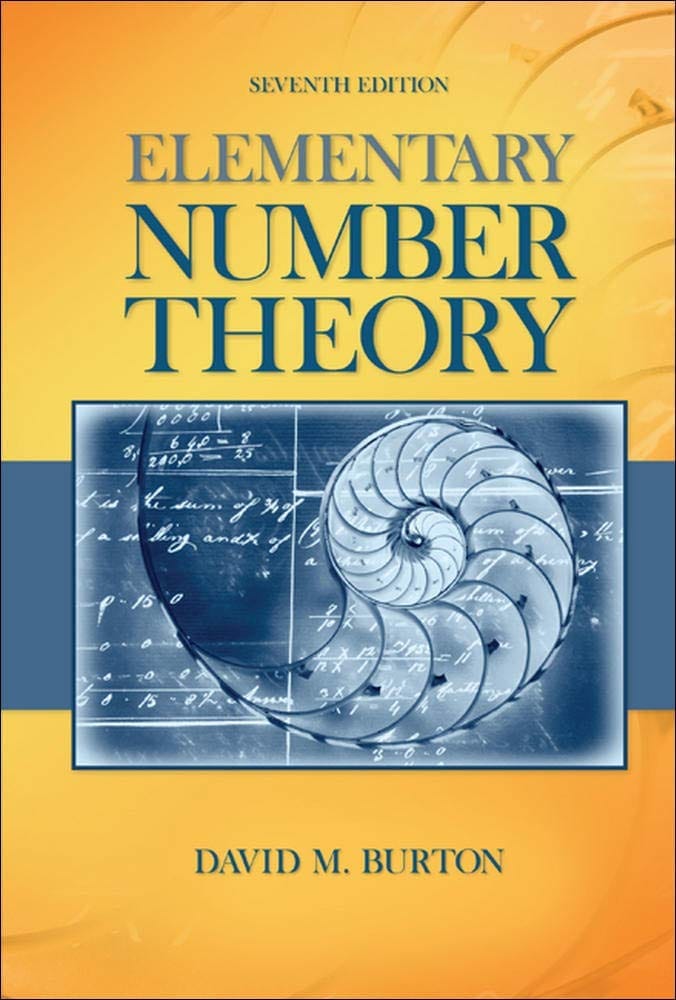
Elementary Number Theory Problems 4.3 Solution (David M. Burton's 7th Edition) - Q6 Paid Members Public
My Solution for "Working modulo $9$ or $11$, find the missing digits in the calculations below: (a) $51840 \cdot 273581 = 1418243x040$. (b) $2x99561 = [3(523 + x)]^2$. (c) $2784x = x \cdot 5569$. (d) $512 \cdot 1x53125 = 1000000000$."
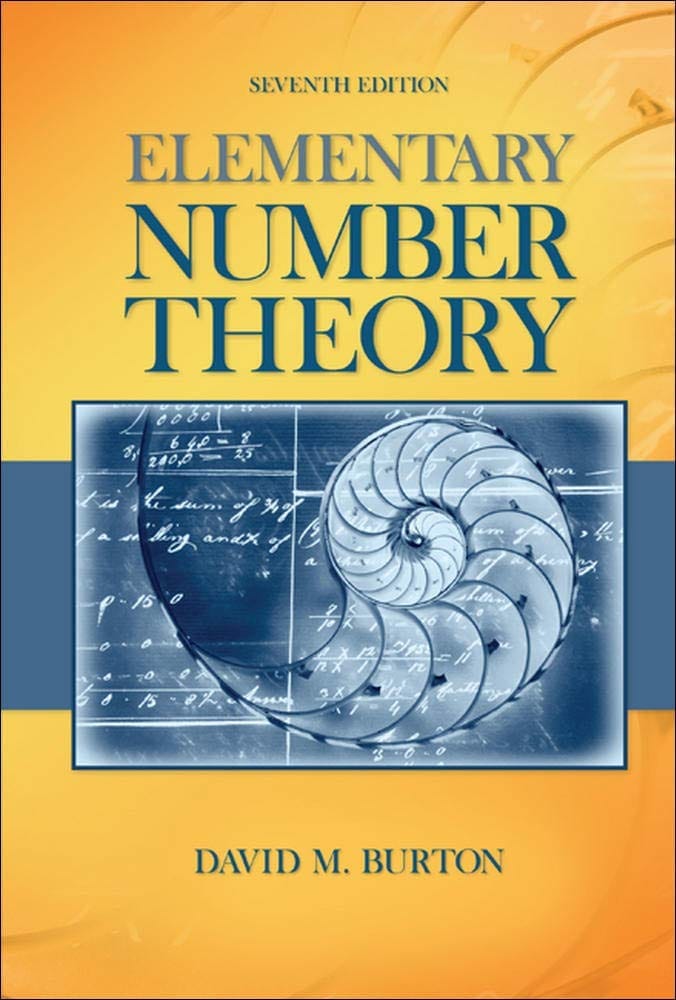
Elementary Number Theory Problems 4.3 Solution (David M. Burton's 7th Edition) - Q5 Paid Members Public
My Solution for "(a) Obtain the following generalization of Theorem 4.6: If the integer $N$ is represented in the base $b$ by $$N = a_{m}b^{m} + \cdots + a_{2}b^{2} + a_{1}b + a_{0} \qquad 0 \leq a_{k} \leq b - 1$$ then $b - 1 \mid N$ if and only if ..."
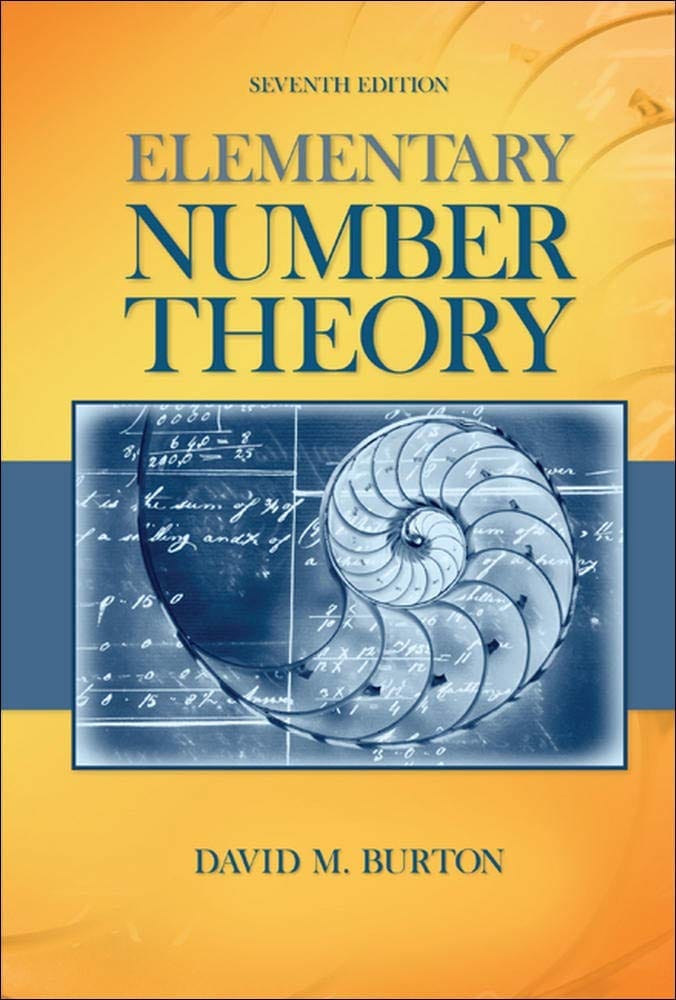
Elementary Number Theory Problems 4.3 Solution (David M. Burton's 7th Edition) - Q4 Paid Members Public
My Solution for "Without performing the divisions, determine whether the integers $176521221$ and $149235678$ are divisible by $9$ or $11$."




